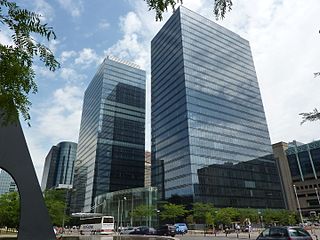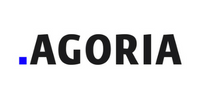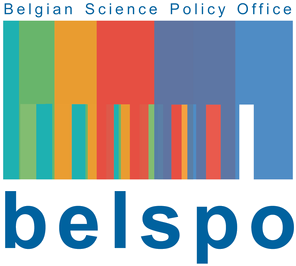
Belgium, officially the Kingdom of Belgium, is a country in Northwestern Europe. The country is bordered by the Netherlands to the north, Germany to the east, Luxembourg to the southeast, France to the southwest, and the North Sea to the northwest. It covers an area of 30,689 km2 (11,849 sq mi) and has a population of more than 11.5 million, making it the 22nd most densely populated country in the world and the 6th most densely populated country in Europe, with a density of 376/km2 (970/sq mi). Belgium is part of an area known as the Low Countries, historically a somewhat larger region than the Benelux group of states, as it also included parts of northern France. The capital and largest metropolitan region is Brussels; other major cities are Antwerp, Ghent, Charleroi, Liège, Bruges, Namur, and Leuven.

The politics of Belgium take place in the framework of a federal, representative democratic, constitutional monarchy. The King of the Belgians is the head of state, and the prime minister of Belgium is the head of government, in a multi-party system. Executive power is exercised by the government. Federal legislative power is vested in both the government and the two chambers of parliament, the Senate and the Chamber of Representatives. The federation is made up of (language-based) communities and (territorial) regions. Philippe is the seventh and current King of the Belgians, having ascended the throne on 21 July 2013.

The economy of Belgium is a highly developed, high-income, mixed economy.

Belgium is a federal state comprising three communities and three regions that are based on four language areas. For each of these subdivision types, the subdivisions together make up the entire country; in other words, the types overlap.
Technology transfer (TT), also called transfer of technology (TOT), is the process of transferring (disseminating) technology from the person or organization that owns or holds it to another person or organization, in an attempt to transform inventions and scientific outcomes into new products and services that benefit society. Technology transfer is closely related to knowledge transfer.

Christianity is the largest religion in Belgium, with the Catholic Church representing the largest community, though it has experienced a significant decline since the 1950s. Belgium's policy separates the state from the churches, and freedom of religion of the citizens is guaranteed by the country's constitution.

Agoria, previously known as Fabrimetal, is a Belgian employers' organization and member of the Federation of Belgian Enterprises.
The National Fund for Scientific Research (NFSR) was once a government institution in Belgium for supporting scientific research until it was split into two separate organizations:
Science and technology in Flanders, being the Flemish Community and more specifically the northern region of Belgium (Europe), is well developed with the presence of several universities and research institutes. These are strongly spread over all Flemish cities, from Kortrijk and Bruges in the Western side, over Ghent as a major university center alongside Antwerp, Brussels and Leuven to Hasselt and Diepenbeek in the Eastern side.
Science and technology in Wallonia, the southern region of Belgium (Europe), is well developed with the presence of several universities and research institutes.

The Federal Public Planning Service Science Policy or Belgian Science Policy Office, Federal Science Policy, known by the acronym BELSPO, is the federal government body responsible for research policy in Belgium. It designs and implements research programmes and networks and manages the participation of Belgium in European and international organisations. BELSPO supervises Belgian federal scientific organisations.

The Royal Meteorological Institute of Belgium is a Belgian federal institute engaged in scientific research in the field of meteorology. The RMI depends on the Belgian Federal Science Policy Office (BELSPO). The institute is a member of the World Meteorological Organization, of the European Centre for Medium-Range Weather Forecasts, of EUMETSAT, and of the EIG Eumetnet.
Science and technology in Brussels, the central region of Belgium (Europe), is well developed with the presence of several universities and research institutes.
Water supply and sanitation in Belgium is provided by a large variety of organizations: Most of the 581 municipalities of Belgium have delegated the responsibility for water supply and sanitation to regional or inter-municipal utilities. There are more than 62 water supply utilities, including 2 regional, 30 inter-municipal and 30 municipal utilities. Another 100 mostly small municipalities provide services directly without having a legally of financially separate entity for water supply. Water is not scarce in Belgium and water supply is generally continuous and of good quality. However, wastewater treatment has long lagged behind and Brussels only achieved full treatment of its wastewater in 2007. In 2004 the European Court of Justice ruled condemning Belgium's failure to comply with the EU wastewater directive, and the ruling has not been fully complied with so far. Wallonia satisfies 55% of the national needs in drinking water while it counts only 37% of the population. Flanders and Brussels are dependent on drinking water from Wallonia, at a level of 40% and 98% respectively.
Derrick-Philippe B. J., Baron Gosselin (1956) is a Belgian engineer and economist. He is chairman of the Belgian Nuclear Sciences Research Center SCK CEN, vice-chairman of Belgonucleaire and vice-chairman of the Royal Higher Institute for Defence (RHID). He is on the board of the Von Karman Institute.

The Global Innovation Index is an annual ranking of countries by their capacity for, and success in, innovation, published by the World Intellectual Property Organization (WIPO). It was started in 2007 by INSEAD and World Business, a British magazine. Until 2021 it was published by WIPO, in partnership with Cornell University, INSEAD and other organisations and institutions. It is based on both subjective and objective data derived from several sources, including the International Telecommunication Union, the World Bank and the World Economic Forum.
Science and technology in Iceland is well developed with the presence of several universities and research institutes.

In Belgium, open access to scholarly communication accelerated after 2007 when the University of Liège adopted its first open-access mandate. The "Brussels Declaration" for open access was signed by officials in 2012.

Science and technology in the Netherlands has an extended history, producing many notable achievements and discoveries in the field. It is an important component in the economic and societal development of the Netherlands. The Dutch government is a driver of scientific and technological progress with science expenditure passing €4.5 billion every year.











